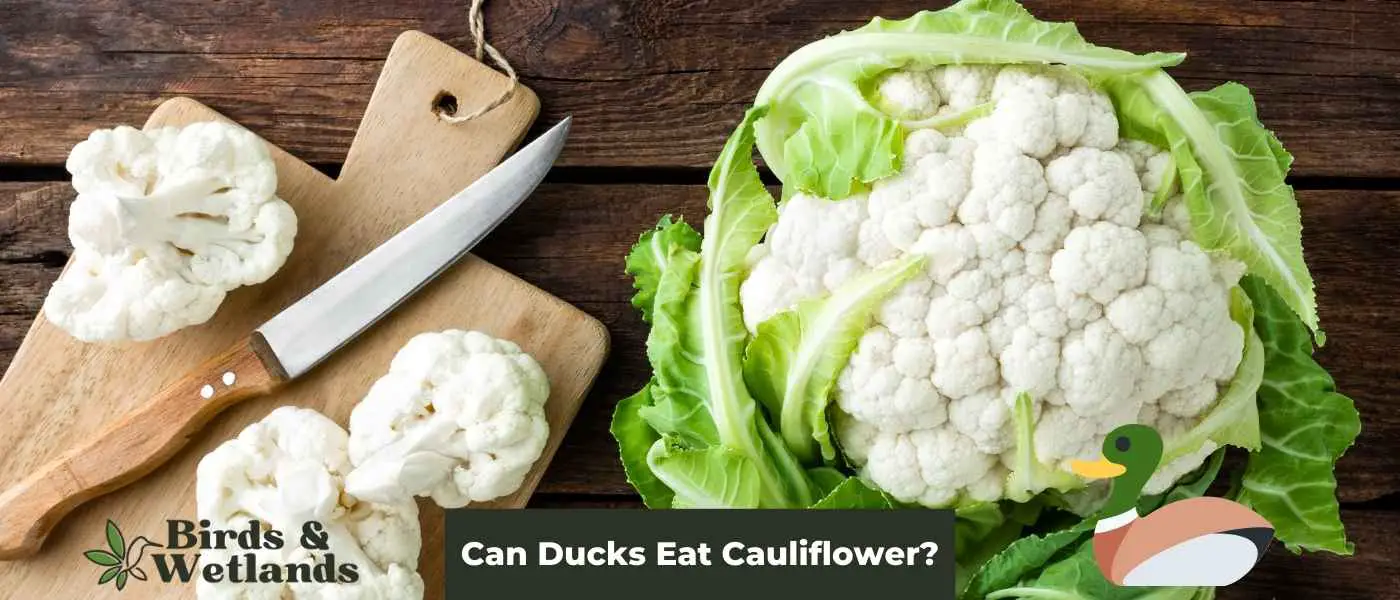Cauliflower is a healthy and nutritious vegetable, but can ducks safely eat it too?
In this article, we’ll explore whether feeding cauliflower to ducks is safe and discuss the potential benefits and risks.
Yes, ducks can eat cauliflower as it is a safe and nutritious food option. Cauliflower contains vitamins, minerals, and fibre, which can contribute to a duck’s overall health. However, offer cauliflower in moderation and chop it into small pieces for easier consumption.
Key Takeaways on Feeding Ducks Cauliflower
- Cauliflower is a good source of fiber, vitamin C, and potassium, so it’s a great choice for keeping your ducks healthy and happy.
- Adding cauliflower to your duck’s diet is a great way to give them the nutrition they need while also providing them with a tasty treat.
- Ducks can eat cauliflower leaves for even more nutritional value.
Is Cauliflower Good for Ducks?
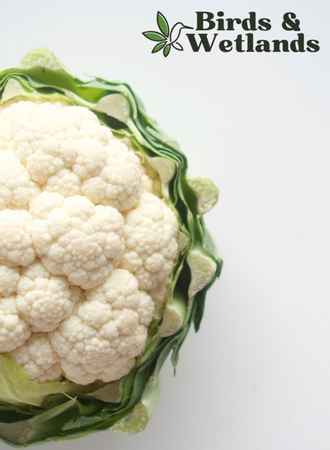
Yes, it is. Here are the benefits of feeding wild ducks with cauliflower.
Vitamin K and Calcium
Vitamin K is an essential nutrient for proper blood clotting and the building of bones. It helps make various proteins that are needed for these processes.
Calcium strengthens bones and reduces the risk of fractures. It is also necessary for muscle contraction, nerve function, and blood clotting.
When ducks consume foods that are high in vitamin K and calcium, they are providing their bodies with the nutrients necessary for these important functions. This can help to improve the overall health of the duck and reduce the risk of problems such as egg binding.
Fiber
The fiber in raw cauliflower benefits a duck’s body in several ways. First, it helps to keep the duck’s digestive system healthy and running smoothly. When a duck’s diet is low in fiber, it may become constipated.
Adding cauliflower to their diet will help to relieve this constipation. The fiber content will also help regulate the duck’s blood sugar levels and promote a healthy weight.
Vitamin C and Antioxidants
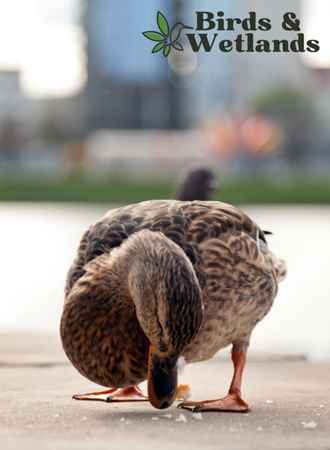
Vitamin C is essential for ducks as it helps to boost their immune system, accelerates healing and promotes healthy blood vessels. A duck’s immune system is responsible for fighting off infection and disease. It is also essential for the healing of wounds and the development of new tissue.
Vitamin C helps to keep blood vessels healthy and free from inflammation. Purple cauliflower is also rich in antioxidants which are good for the duck’s health.
Here’s the complete nutritional value of cauliflower:
| Carbohydrates | 5 g |
| Proteins | 1.9 g |
| Fat | 0.3 g |
| Calories | 25 |
| Water | 92.07 g |
| Dietary Fiber | 2 g |
| Sugar | 1.9 g |
| Vitamin A | 0 mcg |
| Vitamin B12 | 0 mcg |
| Vitamin B6 | 0.18 mg |
| Choline | 44.3 mg |
| Folate | 57 mcg |
| Niacin | 0.507 mg |
| Riboflavin | 0.06 mg |
| Thiamin | 0.05 mg |
| Vitamin C | 48.2 mg |
| Vitamin D | 0 mcg |
| Vitamin E | 0.08 mg |
| Vitamin K | 15.5 mcg |
| Calcium | 22 mg |
| Copper | 0.039 mg |
| Iron | 45 mg |
| Magnesium | 15 mg |
| Phosphorus | 44 mg |
| Potassium | 22 mg |
| Selenium | 0.6 mcg |
| Sodium | 30 mg |
| Zinc | 0.27 mg |
Can Ducks Eat Raw Cauliflower?
Broccoli and cauliflower are good sources of vitamins and minerals, and they can be safely fed to ducks either cooked or raw. When feeding cauliflower, it is important to chop it into small pieces to prevent choking.
Ducks can eat both the stalks and the leaves of the cauliflower plant, so there is no need to waste any part of this healthy vegetable.
Can Ducks Eat Cooked Cauliflower?
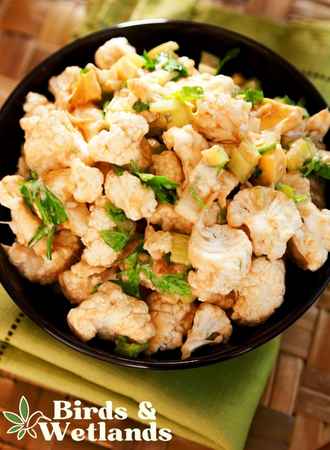
The answer is yes. Ducks can eat cooked cauliflower. This vegetable is generally safe for them to consume, although you should keep a few things in mind.
Cooked cauliflower often contains additives like pepper, oil, salt, or garlic. While these ingredients are generally harmless to ducks, feeding them too much can cause problems. For example, garlic and onions contain the compound thiosulphate, which can cause issues with a duck’s red blood cells if consumed in large amounts.
Additionally, it’s important to note that cooked cauliflower loses some nutrients during the cooking process, mainly when boiled. As a result, it’s best to feed cooked cauliflower to ducks in moderation.
Overall, cooked cauliflower is a safe and healthy food for ducks to eat. Just be sure to watch out for any potential additives, and don’t overdo it on the servings.
Other Similar Foods for Ducks to Eat
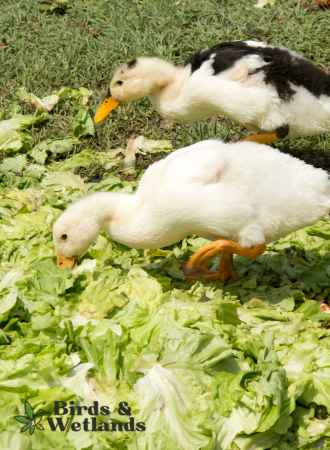
Best Duck Feed Pellets
Are you a duck owner looking for the perfect feed to keep your feathered friends happy and healthy? Look no further than Purina Duck Feed Pellets! With their nutritionally balanced formula and high-quality ingredients, these pellets are the ultimate solution for providing your ducks with the nutrition they need to thrive.
Pros
- Complete Nutrition: Purina Duck Feed Pellets are nutritionally balanced to provide all the essential vitamins and minerals that ducks need to stay healthy and strong.
- Easy to Digest: The pellets are specially formulated to be easy to digest, which makes them ideal for ducks of all ages.
- Promotes Growth and Development: With its balanced nutrition formula, Purina Duck Feed Pellets are designed to support healthy growth and development in ducks.
- Suitable for All Breeds: Whether you have domestic ducks or wild ducks, Purina Duck Feed Pellets are suitable for all breeds of ducks.
- Trusted Quality: Purina has been producing high-quality animal feed for over 100 years, so you can trust that your ducks are getting the best possible nutrition with Purina Duck Feed Pellets.
Cons
- Cost: Compared to other types of duck feed on the market, Purina Duck Feed Pellets can be slightly more expensive. However, many customers feel that the high-quality ingredients and balanced nutrition formula are worth the extra investment.
- Pellet Size: Some customers have noted that the pellet size of Purina Duck Feed Pellets can be quite large, which may not be suitable for smaller or younger ducks. However, many customers have reported that the pellets can easily be broken up or soaked in water to make them easier to eat.

